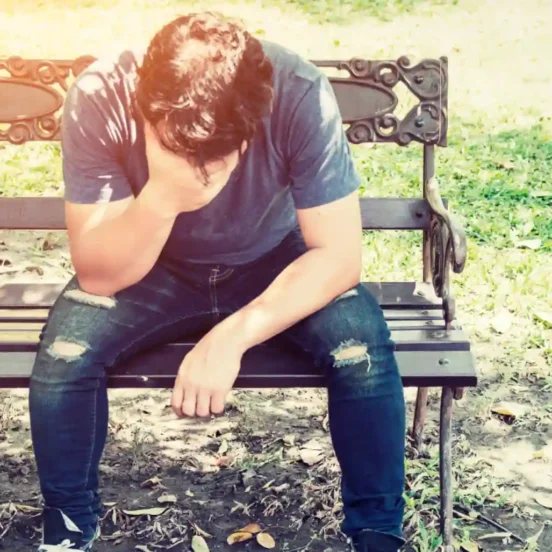Laziness vs Depression: Understanding the Key Differences
Laziness versus depression is a comparison that often stirs curiosity and concern among individuals seeking to understand their own emotions and behaviors. Both terms are frequently used in casual conversation, sometimes interchangeably, yet they represent distinct psychological states.
Laziness may seem innocuous, but depression is a serious condition that can profoundly impact an individual’s overall well-being, relationships, and daily functioning.
Understanding the differences between laziness and depression is essential for recognizing the signs, seeking appropriate support, and fostering empathy toward those navigating these challenges.
Is Laziness a Sign of Depression?
One of the common misconceptions surrounding depression is the belief that laziness is a primary symptom. While it’s true that individuals experiencing depression may struggle with feelings of lethargy and lack of motivation, it’s important to recognize that laziness and depression are not synonymous.
Laziness typically implies a temporary lack of desire to engage in activities, often due to factors like boredom or procrastination.
On the other hand, depression involves pervasive feelings of sadness, emptiness, and worthlessness that persist over an extended period, significantly impacting daily functioning and overall quality of life.
While laziness can sometimes accompany depression as a symptom, it’s crucial to differentiate between the two to ensure appropriate support and treatment are sought.
Here are some signs that laziness might actually be depression:
- You feel a general lack of motivation to do anything, even things you used to enjoy.
- You feel constantly tired, even after getting a good night’s sleep.
- You have difficulty concentrating or making decisions.
- You’ve lost interest in hobbies or activities that you used to enjoy.
- You have feelings of worthlessness or guilt.
- You have thoughts of death or suicide.
Am I Lazy or Depressed?
Distinguishing between laziness and depression can be challenging, as both may involve feelings of disinterest in activities and a lack of motivation. However, several key differences can help you determine whether you’re experiencing laziness or depression.
Laziness tends to be more situational and temporary, often linked to specific circumstances or habits. It may be accompanied by feelings of boredom or procrastination but generally does not significantly impair daily functioning or overall well-being.
For example, depression is a mental health condition characterized by persistent feelings of sadness, hopelessness, and a loss of interest in activities once enjoyed. It typically affects various aspects of life, including relationships, work, and self-care, and may be accompanied by physical symptoms such as changes in appetite or sleep patterns.
If you’re unsure whether you’re experiencing laziness or depression, consider seeking guidance from a mental health professional for an accurate assessment.
Laziness VS Depression
While both laziness and depression can involve a lack of motivation, they stem from different underlying causes and have distinct effects on an individual’s mental and emotional well-being. Understanding the differences between these two states is crucial for accurate diagnosis and appropriate intervention.
| Criteria | Laziness | Depression | |
| Definition | Temporary reluctance or unwillingness to engage in activities due to factors like boredom or procrastination. | Persistent mood disorder characterized by overwhelming sadness, loss of interest, and diminished energy levels. | |
| Duration | Typically short-term and situational. | Prolonged, lasting for weeks, months, or even years, with symptoms often worsening over time without intervention. | |
| Impact on Functioning | May affect productivity and daily tasks, but generally does not significantly impair overall functioning. | Can severely impair various aspects of life, including work, relationships, and overall quality of life. | |
| Psychological Symptoms | Lack of motivation without underlying feelings of sadness or hopelessness. | Persistent feelings of sadness, hopelessness, and worthlessness, are often accompanied by changes in appetite, sleep patterns, and difficulty concentrating. | |
| Treatment | Typically addressed through behavior changes and self-discipline. | Often requires professional intervention, such as therapy, medication, or a combination of both. | |
How to Overcome Depression Laziness
Overcoming depression-related laziness requires a proactive approach that addresses both mental and physical well-being. By implementing strategies to boost motivation and foster a sense of purpose, individuals can gradually overcome the lethargy associated with depression.
1. Establish a Routine:
Creating a structured daily schedule can provide a sense of stability and purpose, helping to counteract the inertia often associated with depression. Set specific times for waking up, meals, exercise, and leisure activities to maintain consistency and promote productivity.
2. Break Tasks into Manageable Steps:
Depression can make even simple tasks feel overwhelming. Break down larger goals into smaller, more achievable steps to prevent feelings of being paralyzed by laziness. Celebrate each accomplishment, no matter how small, to build momentum and motivation.
3. Prioritize Self-Care:
Practicing self-care is essential for managing depression-related symptoms, including laziness. Make time for activities that nourish your body and mind, such as exercise, meditation, hobbies, and spending time with loved ones. Prioritizing self-care can help replenish your energy and improve your overall mood.
4. Challenge Negative Thoughts:
Depression often accompanies negative thinking patterns that reinforce feelings of worthlessness and lethargy. Challenge these thoughts by identifying evidence that contradicts them and replacing them with more balanced and realistic perspectives. Cognitive-behavioral techniques, such as journaling and cognitive restructuring, can be helpful in this process.
5. Seek Support:
Don’t hesitate to reach out for support from friends, family, or mental health professionals. Surrounding yourself with understanding and compassionate individuals can provide encouragement, perspective, and practical assistance in overcoming depression-related laziness.
6. Consider Therapy or Medication:
If depression-related laziness persists despite self-help efforts, consider seeking professional treatment. Therapy, such as cognitive-behavioral therapy (CBT) or interpersonal therapy (IPT), can provide strategies for managing symptoms and improving motivation. In some cases, medication prescribed by a psychiatrist may also be beneficial in alleviating depression symptoms and restoring energy levels.
Difference Between Laziness and Depression
Laziness and depression can both result in a lack of motivation and unwillingness to do things, but they stem from very different causes.
- Laziness
Symptoms:
- Lack of motivation for specific tasks, often due to perceived difficulty or boredom.
- Procrastination on non-urgent activities.
- Preference for leisure activities over work or chores.
Causes:
- Boredom or lack of interest in the task at hand.
- Feeling tired but not clinically depressed.
- Prioritizing relaxation or enjoyment over work.
Treatments:
- Self-care: Getting enough sleep, eating healthy, and exercising can boost energy levels and motivation.
- Breaking down tasks: Large, overwhelming tasks can feel paralyzing. Divide them into smaller, more manageable steps.
- Rewarding yourself: Set small goals and reward yourself for completing them. This can create positive reinforcement.
- Depression
Symptoms:
- Persistent low mood or sadness.
- Loss of interest or pleasure in activities once enjoyed.
- Significant changes in appetite or sleep (too much or too little).
- Difficulty concentrating, making decisions, or remembering things.
- Restlessness or feeling slowed down.
- Fatigue or lack of energy nearly every day.
- Feelings of worthlessness, guilt, or hopelessness.
- Thoughts of death or suicide.
Causes:
- Complex and not fully understood, but can be influenced by a combination of genetic, biological, psychological, and social factors.
- Brain chemistry imbalances involving neurotransmitters like serotonin and norepinephrine.
- Life stressors, such as trauma, loss, or chronic illness.
Treatments:
- Therapy: Cognitive behavioral therapy (CBT) can help identify negative thought patterns and develop coping mechanisms.
- Medication: Antidepressants can help regulate brain chemistry and improve mood.
- Lifestyle changes: Healthy sleep habits, exercise, and a balanced diet can support mental health.
- Support groups: Connecting with others who understand depression can be invaluable.
Closing Note
While laziness and depression may share superficial similarities, they are distinct psychological states with different origins, durations, and impacts on an individual’s life. Recognizing the differences between the two is essential for accurate diagnosis and effective intervention. Whether struggling with occasional bouts of laziness or experiencing the debilitating effects of depression, seeking support and guidance from mental health professionals can facilitate understanding, healing, and the journey toward improved well-being.















